USED TO
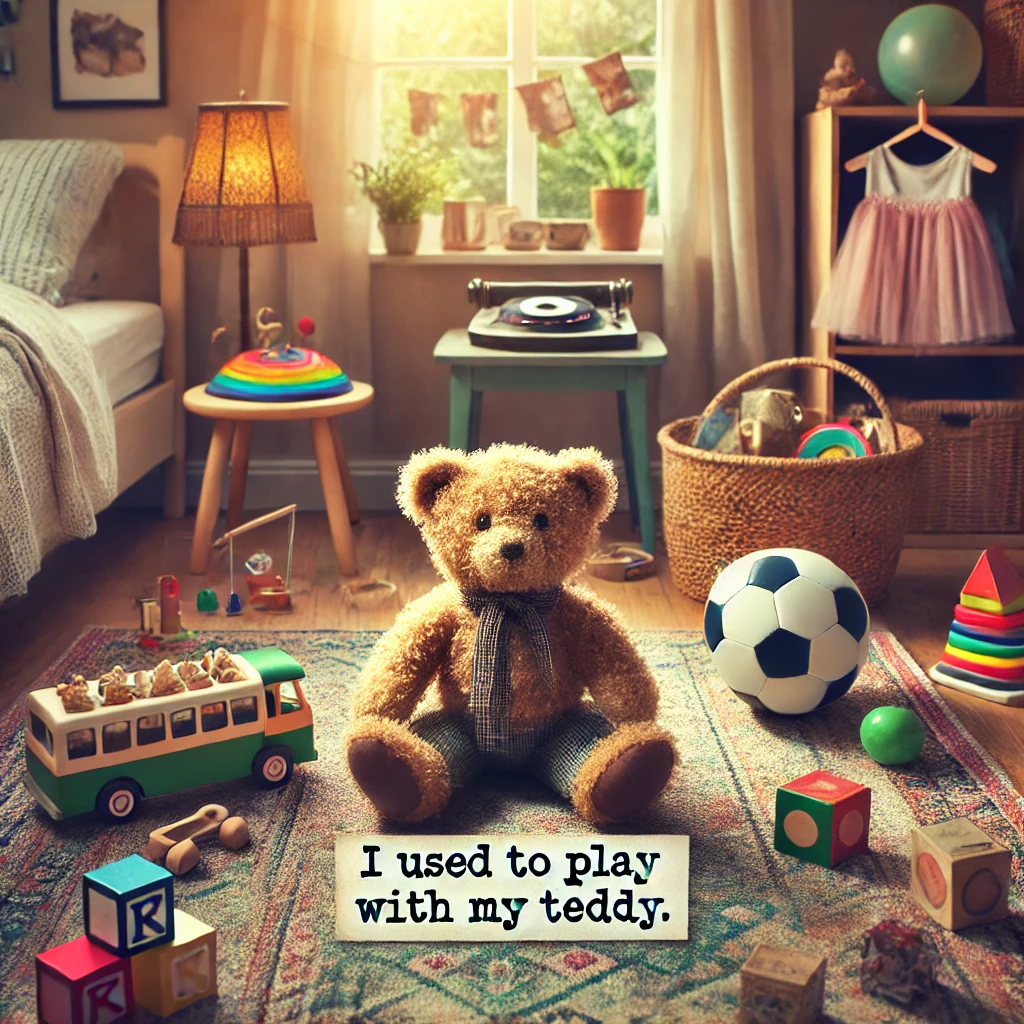
Learning goals
- Understand the Use of “Used to”: Review and understand how to use “used to” for expressing past habits and states.
- Apply “Used to” in Real-Life Contexts: Practice using “used to” in various real-life scenarios and contexts.
- Differentiate Between “Used to” and Other Past Tenses: Learn the differences between “used to” and other past tense forms.
Content
“Used to” is used to describe habits or states that were true in the past but are no longer true. It helps to emphasize that something was a regular activity or a state in the past but has since changed.
Structure
- Affirmative: Subject + used to + base form of the verb
- Example: “I used to play tennis.”
- Negative: Subject + didn’t use to + base form of the verb
- Example: “I didn’t use to play tennis.”
- Interrogative: Did + subject + use to + base form of the verb?
- Example: “Did you use to play tennis?”
Practical Examples and Applications

Example 1: “I used to walk to school every day.”
- Application: Describes a past habit of walking to school that no longer happens.
Example 2: “She used to live in New York.”
- Application: Indicates that she lived in New York in the past but doesn’t live there anymore.
Example 3: “They used to go camping every summer.”
- Application: Shows a past routine of going camping each summer that has stopped.
Example 4: “We didn’t use to eat out so often.”
- Application: Indicates a past habit of not eating out frequently that has changed.
Example 5: “Did you use to have a pet when you were a child?”
- Application: Asks about a past state or habit of having a pet during childhood.
Learning activities
Habit Transformation
Objective: Reinforce the use of “used to” by transforming current habits into past habits.
Instructions:
- You will be provided with a list of current habits (e.g., “I play soccer every weekend”).
- You will be asked to rewrite each sentence using “used to” to describe it as a past habit (e.g., “I used to play soccer every weekend”).
- Example: “I watch TV every evening” becomes “I used to watch TV every evening.”
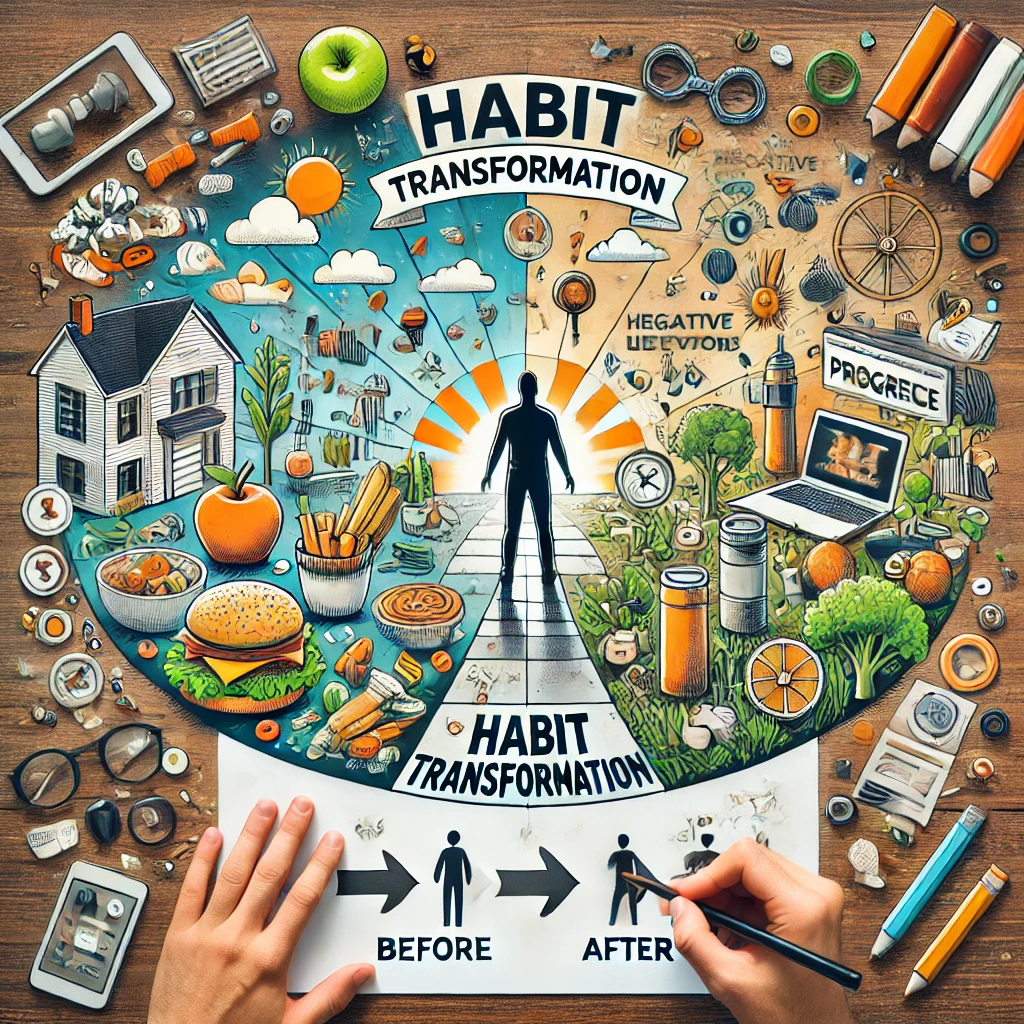
Memory Lane
Objective: Practice using “used to” by sharing past experiences.
Instructions:
- The class will be divided into small groups.
- Each student will share a memory from their past using “used to” (e.g., “I used to ride my bike to the park every Saturday”).
- Group members will ask follow-up questions to learn more about each other’s past habits and states.

“Used to” Bingo
Objective: Use gamification to reinforce the use of “used to.”
Instructions:
- You’ll have Bingo cards with different sentences describing past habits or states (e.g., “I used to play the piano”).
- Clues or scenarios related to the sentences on the Bingo cards will be called out (e.g., “Who played a musical instrument in the past?”).
- You will mark their Bingo cards when you recognize the sentence that matches the clue.
- The first student to complete a row shouts “Bingo!” and reads out their sentences.
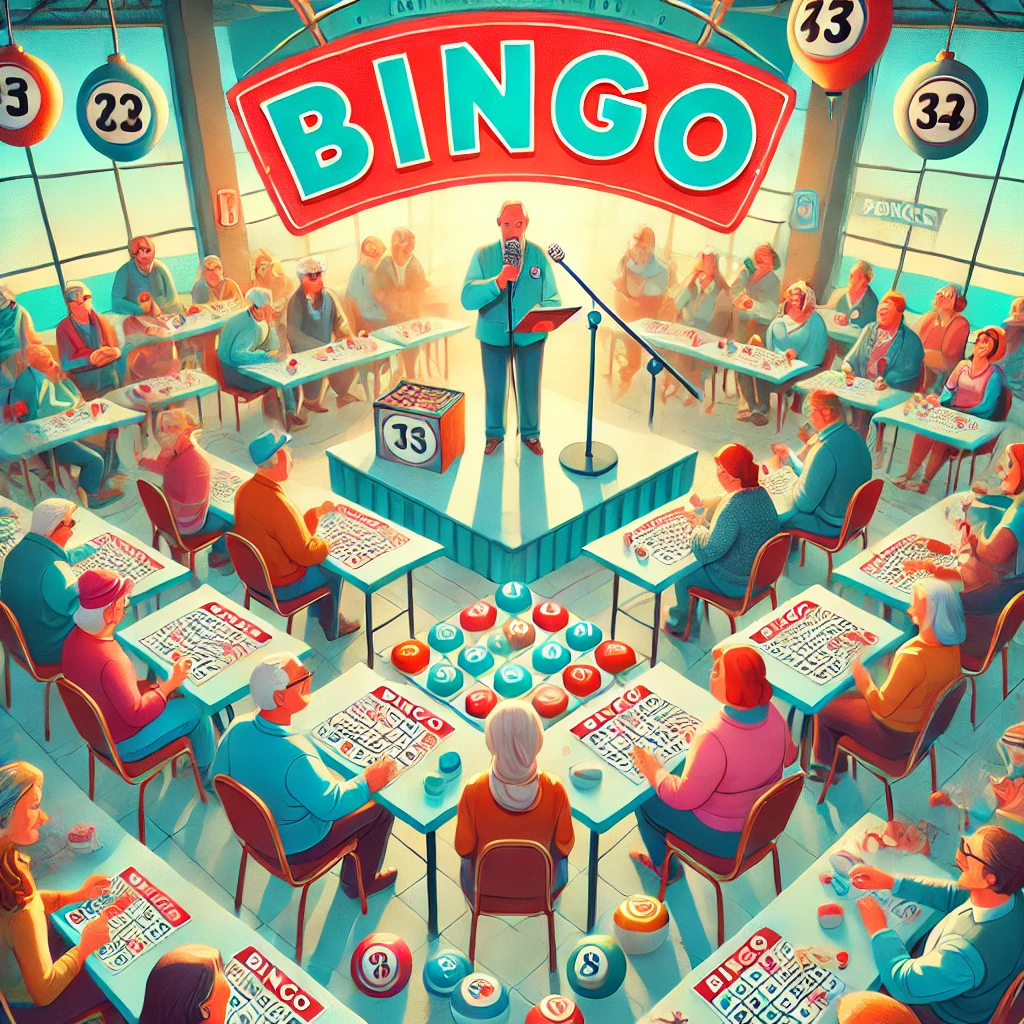
Then and Now
Objective: Compare past and present habits using “used to” and present tense.
Instructions:
- You will be asked to write a short paragraph about your current habits and routines.
- Next, write a paragraph about your past habits and routines using “used to.”
- Example: “Now, I go to the gym every morning. I used to go for a run in the park every morning.”
- Students share their paragraphs with a partner and discuss the differences between their past and present habits.
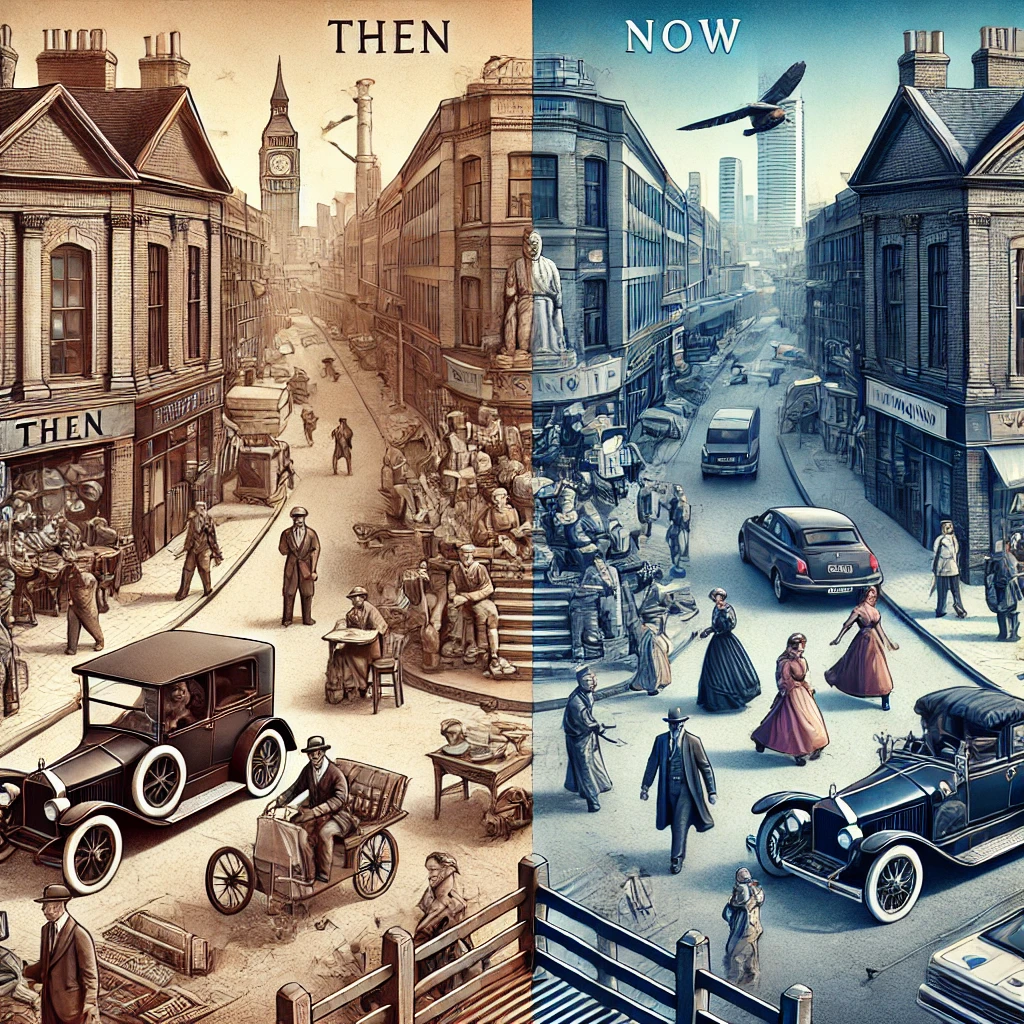
WOULD
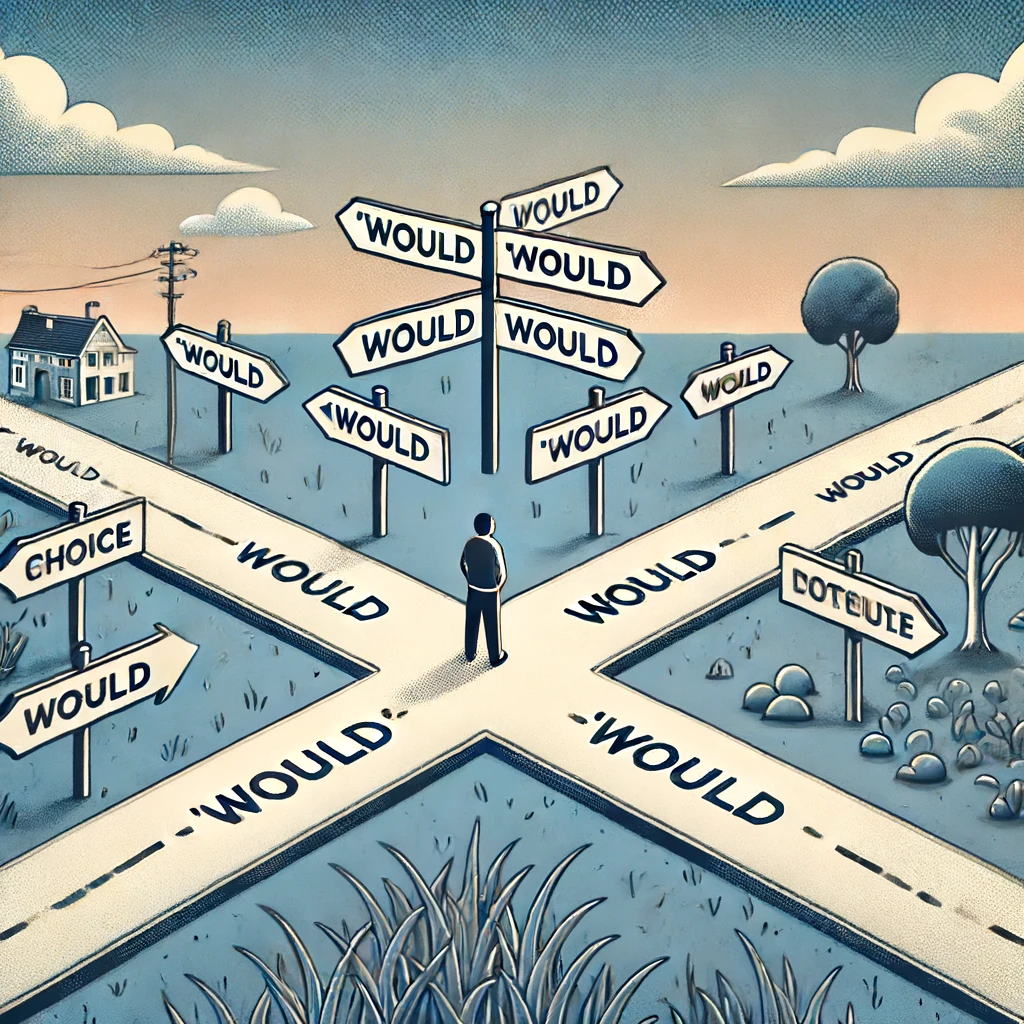
Learning Objectives
- You will be able to explain the use of “would” to describe habitual or voluntary actions that occurred in the past.
- You will be able to differentiate the use of “would” for past habits and voluntary actions from other past tense forms such as “used to” and the past simple.
- You will practice using “would” to describe past habitual actions and willingness in various real-life scenarios, both in speaking and writing.
- You will improve your listening and speaking skills by engaging in activities that require the use of “would” to talk about past actions.
Content
“Would” is used to describe habitual actions or behaviors in the past that were done willingly or regularly. It often conveys a sense of routine or repeated actions that a person used to do voluntarily. This use of “would” is similar to “used to” but emphasizes the voluntary nature of past actions.
Structure
- Affirmative: Subject + would + base form of the verb
- Example: “Every summer, we would visit our grandparents in the countryside.”
- Negative: Subject + wouldn’t + base form of the verb
- Example: “When I was a child, I wouldn’t eat vegetables.”
- Interrogative: Would + subject + base form of the verb?
- Example: “Would you play outside after school when you were younger?”
Examples

Example 1: “When I was young, I would spend hours reading books in my room.”
- Application: Describes a habitual action in the past done willingly.
Example 2: “Every weekend, they would go hiking in the mountains.”
- Application: Indicates a regular, willing activity in the past.
Example 3: “She would always help her mother with the cooking.”
- Application: Shows a repeated, voluntary action in the past.
Example 4: “My friends and I would play soccer in the park every afternoon.”
- Application: Describes a routine activity that was done willingly in the past.
Example 5: “He wouldn’t miss a single practice session when he was on the basketball team.”
- Application: Indicates a regular, voluntary behavior in the past.
Learning Activities
Personal Anecdotes Sharing
Objective: Practice using “would” to describe past willing actions through personal stories.
Instructions:
- Preparation: Think about your childhood or teenage years and recall activities you used to do regularly and willingly.
- Pair Work: The class will be divided into pairs. Each student takes turns sharing a personal anecdote using “would” to describe past willing actions.
- Discussion: After sharing, each pair discusses the similarities and differences in their past activities.
- Example: “When I was a kid, I would spend every summer at my grandparents’ house. We would go fishing and pick fresh vegetables from the garden.”
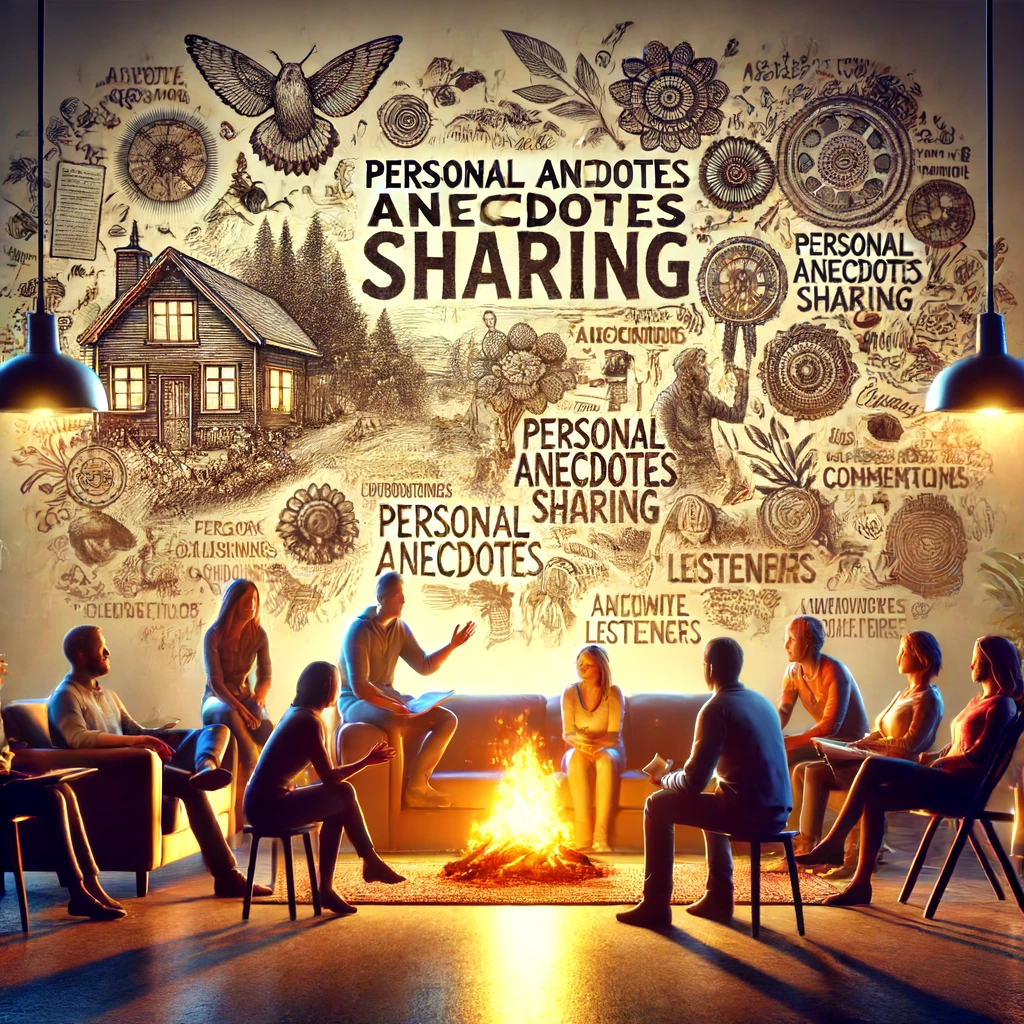
Past Willingness Role-Play
Objective: Use “would” to describe past habitual and willing actions in a role-playing scenario. Instructions:
- Preparation: You will receive some scenarios that require you to talk about your past routines and willing actions (e.g., “Describe your weekends as a teenager” or “Talk about your family gatherings when you were younger”).
- Group Work: The class will be divided into small groups. Each group selects a scenario and prepares a short role-play.
- Performance: Groups perform their role-plays in front of the class, using “would” to describe past willing actions.
- Feedback: After each performance, the class provides feedback on the use of “would” and the clarity of the descriptions.
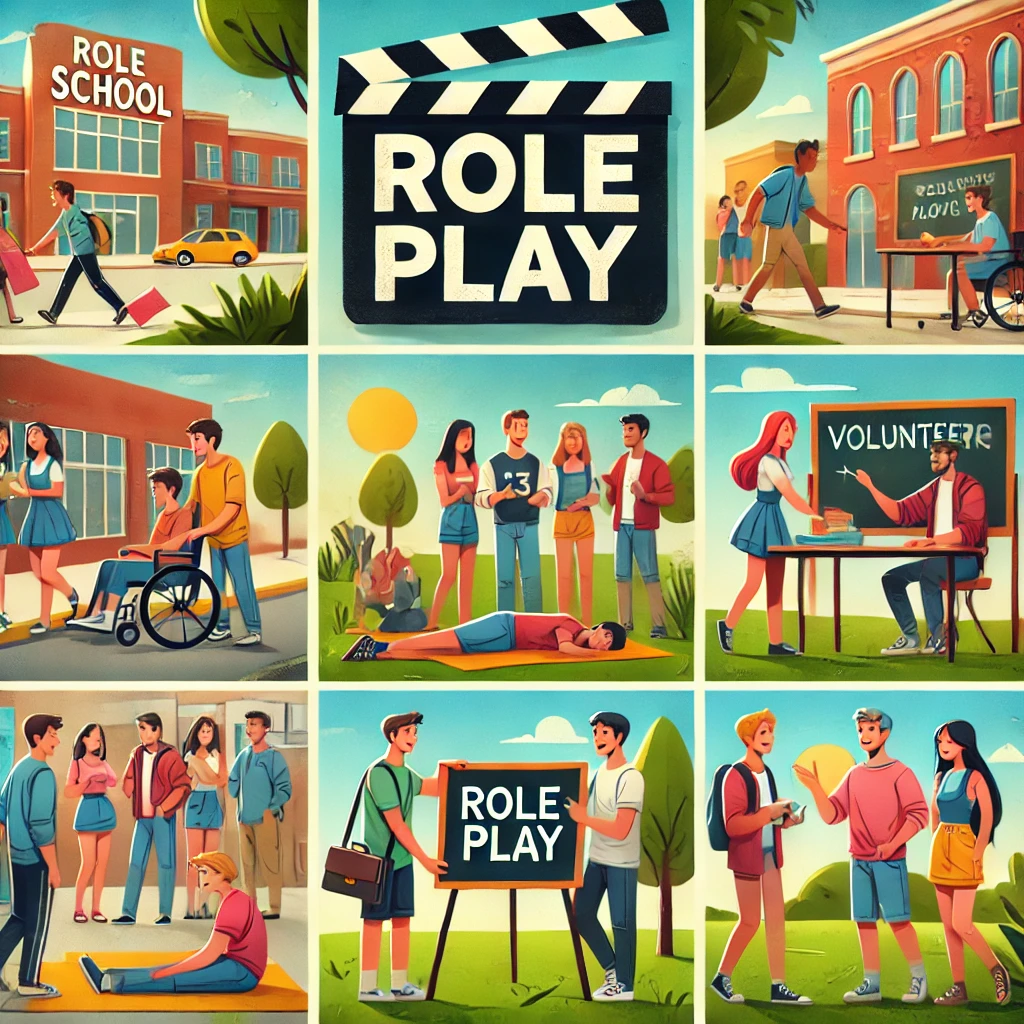
Willingness in the Past Writing Exercise
Objective: Reinforce the use of “would” in written form by creating a story about past willing actions. Instructions:
- Preparation: You will receive a prompt to write a short story about a typical day in your past, focusing on actions you did willingly.
- Writing: Each student will write a story, ensure you use “would” to describe past willing actions. Be detailed and creative.
- Peer Review: After writing, exchange your stories with a partner for peer review. They highlight the use of “would” and provide feedback on the clarity and fluency of the writing.
- Sharing: Students will share their stories with the class.
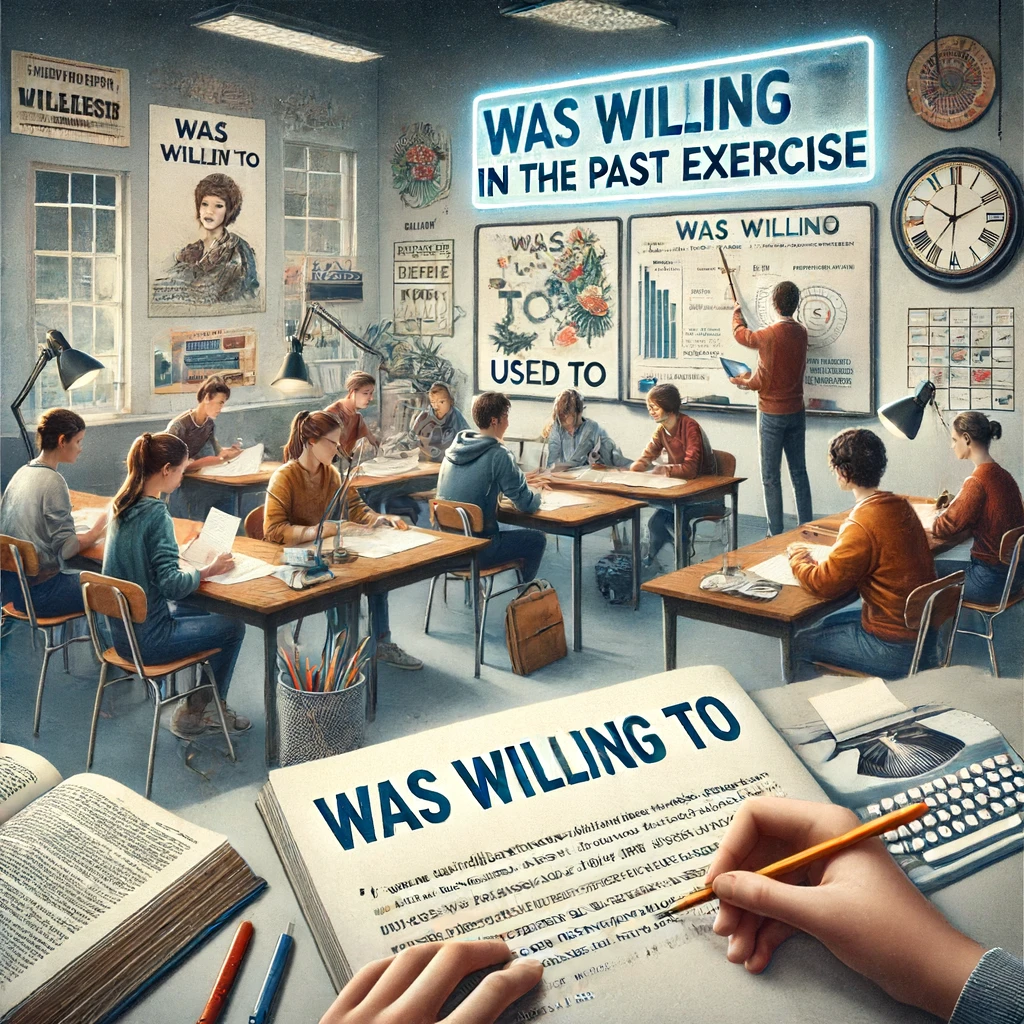
Distinguishing Between “Would” and “Used to”
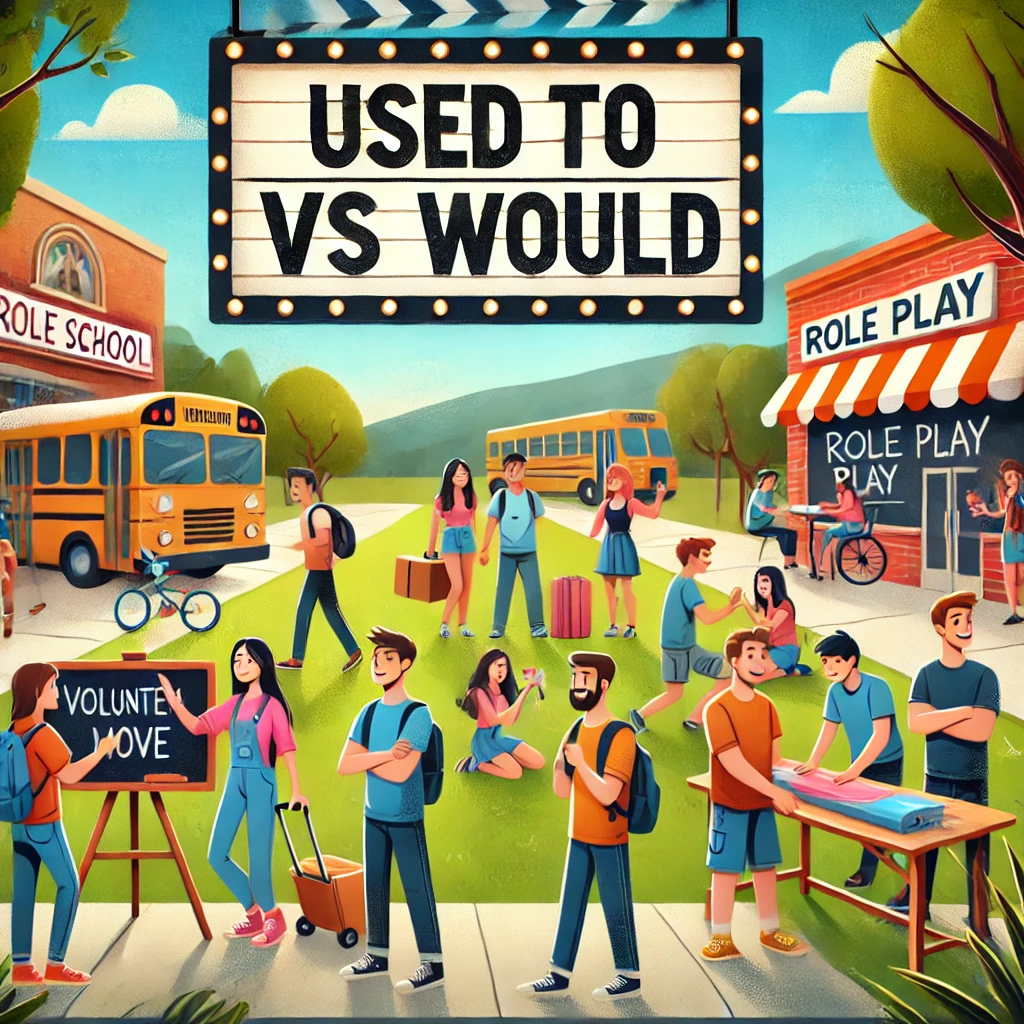
Learning Objectives
Understand the Differences: Help you distinguish between “would” and “used to” in the context of past habits and states.
Apply Knowledge in Context: Enable you to apply your understanding by identifying and analyzing the use of “would” and “used to” in a given text.
Content
Difference between “would” and “used to”
- “Used to” is used to describe past habits AND states.
- “Would” is used to describe repeated habits/routines in the past but typically NOT states.
Examples:
Correct: “When I was a child, I used to play in the park every afternoon.” (habitual action)
Correct: “When I was a child, I would play in the park every afternoon.” (habitual action)
Correct: “He used to have long hair.” (state)
Incorrect: “He would have long hair.” (This sounds odd because “would” doesn’t describe states)
Learning Activities
Reading: A Glimpse into the Past
- Read the passage carefully.
- Identification: underline or highlight sentences that use “would” and “used to.”
- Discussion: After reading, we will discuss the sentences you highlighted and explain why “would” or “used to” is used in each case.

When I was a child, I used to visit my grandparents’ house every summer. Their house was in a small village surrounded by forests and rivers. We would spend our days exploring the woods and swimming in the river. My grandmother used to bake the most delicious cookies, and we would always help her in the kitchen. In the evenings, my grandfather would tell us stories about his adventures as a young man.
On rainy days, we used to stay indoors and play board games or read books. My grandfather had a vast collection of books, and he would always recommend something exciting for us to read. Sometimes, we would sit by the fireplace, and he would play his old guitar while we sang along.
My grandparents’ house was full of old photographs and memorabilia. My grandmother would often show us pictures from her youth and tell us about the different places she used to visit. She would describe the bustling markets, the serene beaches, and the vibrant festivals she attended.
One of my favorite memories is of the annual village fair. Every year, we would eagerly await the fair, which was held in the central square. The entire village used to come together for this event. There were food stalls, games, and music. We would spend hours playing games and eating delicious treats.
Looking back, I realize how much I cherished those summers. The time spent with my grandparents created lasting memories that I hold dear to this day. I used to think that those days would never end, but as I grew older, our visits became less frequent. Still, the experiences we shared are something I will always treasure.
Worksheet Activity
You will receive a worksheet.
Complete the sentences by choosing the correct form: “would” or “used to”
Example Worksheet:
When I was younger, I __________ (would/used to) visit my grandparents every summer.
Correct Answer: used to
She __________ (would/used to) have long hair when she was a teenager.
Correct Answer: used to
We __________ (would/used to) go to the beach every weekend.
Correct Answer: would
He __________ (would/used to) be very shy in school.
Correct Answer: used to
My father __________ (would/used to) tell us bedtime stories every night.
Correct Answer: would
